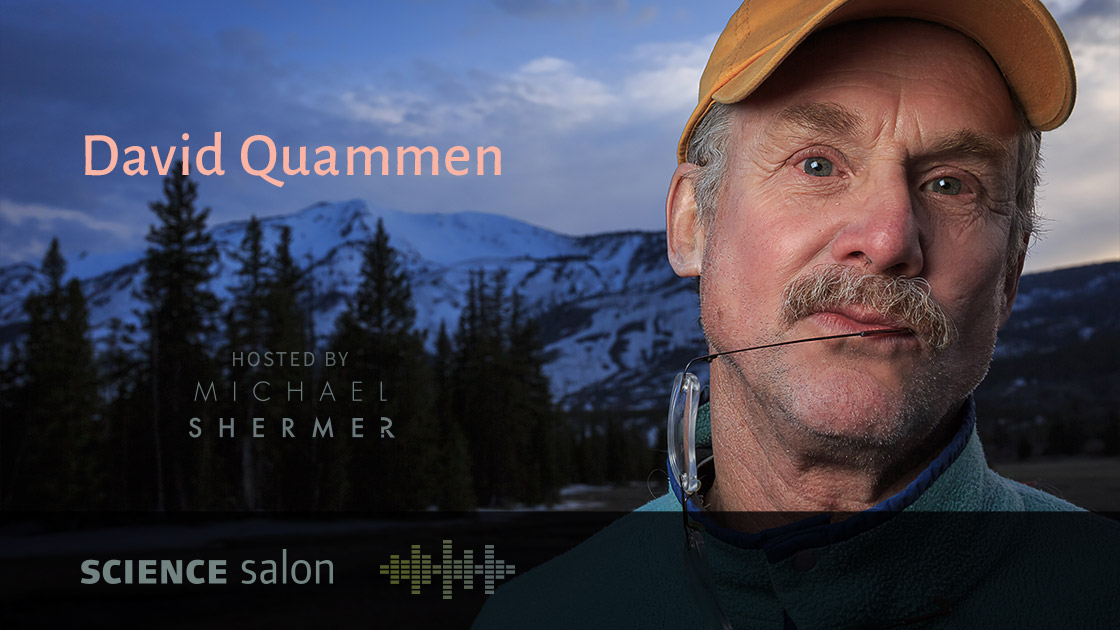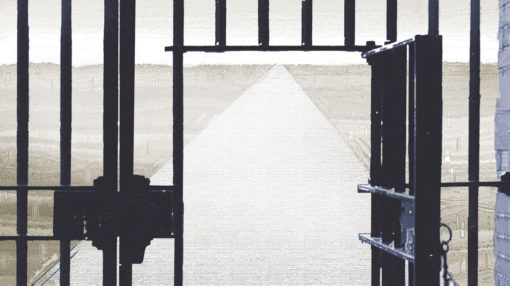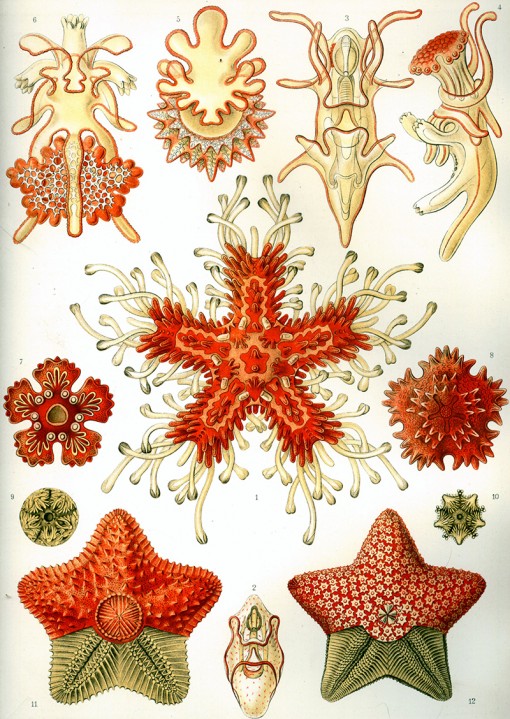biology

In Science Salon # 33, Michael Shermer talks with David Quammen, one of the best nature and science writers of our generation, about his new book on the history of one of the most exciting revolutions in evolution and genetics that is unfolding before our eyes.
In Science Salon # 33, Michael Shermer talks with with David Quammen, one of the best nature and science writers of our generation, about his new book on the history of one of the most exciting revolutions in evolution and genetics that is unfolding before our eyes.

Nathan H. Lents and Lila Kazemian discuss evidence from a variety of disciplines as disparate as animal behavior and moral theology that point toward more humane, efficient, and effective responses to crime and punishment that work in concert, rather than in conflict, with our evolutionary psychology.

Nathan H. Lents and Lila Kazemian discuss evidence from a variety of disciplines as disparate as animal behavior and moral theology that point toward more humane, efficient, and effective responses to crime and punishment that work in concert, rather than in conflict, with our evolutionary psychology.

Mike McRae provides a glimpse into the history of two competing systems of biology: life as complex chemistry, and the abandoned theory of vitalism. (Part 3 of 3.)

Mike McRae provides a glimpse into the history of two competing systems of biology: life as complex chemistry, and the abandoned theory of vitalism. (Part 2 of 3.)

Mike McRae provides a glimpse into the history of two competing systems of biology: life as complex chemistry, and the abandoned theory of vitalism. (Part 1 of 3.)
Horror is both the human emotion, and the artistic genre designed to produce that emotion. What is it really, and why do we regularly seek out such an unpleasant experience? In this week’s Halloween edition of eSkeptic, Stephen T. Asma discusses “horror” and our fascination with it.
In this lectures, based on his book Here on Earth, Tim Flannery presents a captivating and dramatic narrative about the origins of life and the history of our planet.
J. S. Snelson discusses how our biological immune system protects our bodies from an invasion of foreign agents and pathogens, and, in the context of the historical discovery and treatment of malaria, how our ideological immune system protects our minds from an invasion of foreign ideas and doctrines.
In this week’s eSkeptic, we present William Stansfield’s article from the archives of Skeptic magazine Volume 10, Number 4 in which he critiques the typing monkeys metaphor generated by Richard Hardison and Richard Dawkins as being too unlike the biological realities of natural selection.
INTREPID INTERNATIONAL EXPLORER, biologist, and National Geographic photographer Mark W. Moffett, “the Indiana Jones of entomology,” takes us around the globe on a strange and colorful journey in search of the hidden world of ants. In tales from Nigeria, Indonesia, the Amazon, Australia, California, and elsewhere, Moffett recounts his entomological exploits and provides fascinating details on how ants live and how they dominate their ecosystems through strikingly human behaviors, yet at a different scale and a faster tempo…
In this week’s eSkeptic, Clark Lindgren recounts the birth of Bio 150 — An Introduction to Biological Inquiry. By turning the curriculum on its head, the Biology Department at Grinnell College has created opportunities for students to perform actual scientific research from the get-go. Results suggest that students are getting just what they need to confirm their interest in biology and get an early start developing their skills as young scientists.
In this Caltech lecture, Carl Zimmer, an award-winning science writer (New York Times, Discover), takes readers on a frightening tour of the H1N1 flu virus, how it evolved, and what deadly diseases tell us about how evolution works.
Culled from the expansive work of Carl Sagan, we present some of his own words on the cosmos, ETs, childhood, genes, brains, pseudoscience, science literacy, nonsense, uncertainty, biology, history and God.
Morality is our biological destiny. We each have within us the awesome power to create our own meaning in life, our own sense of purpose, our own destiny. With a natural ethic we are able to move beyond the random hand of birth to pave our own road to a better life. With the ability to choose to be good comes the obligation to make that choice; choosing to be moral is what makes us special as individuals and as…
2009 marks the 200th anniversary of Charles Darwin’s birth on February 12, 1809 — the same day as Abraham Lincoln — and the 150th anniversary of the publication of On the Origin of Species on November 24, 1859. Come join us for a special celebration of the life and science of one of the greatest scientists in history.
Our 2008 conference at Caltech, on the question of origins, featured lectures by Leonard Susskind, Paul Davies, Sean Carroll, Donald Prothero, Christof Koch, Stuart Kauffman, Kenneth Miller, Nancey Murphy, Michael Shermer, Hugh Ross, Victor Stenger, and a performance by Mr. Deity.
In the tradition of the bestselling The Physics of Star Trek, acclaimed science writer Jennifer Ouellette explains fundamental concepts in the physical sciences through examples culled from the hit TV shows Buffy the Vampire Slayer and its spin-off, Angel. The weird and wonderful world of the Buffyverse —where the melding of magic and science is an everyday occurrence — provides a fantastical jumping-off point for looking at complex theories of biology, chemistry, and theoretical physics…
In this week’s eSkeptic, Dr. Frank J. Sulloway explores the question of whether Lonesome George — the only known giant tortoise from the island of Pinta in the Galápagos — is the last survivor of his race.
← PREVIOUS
NEXT →













